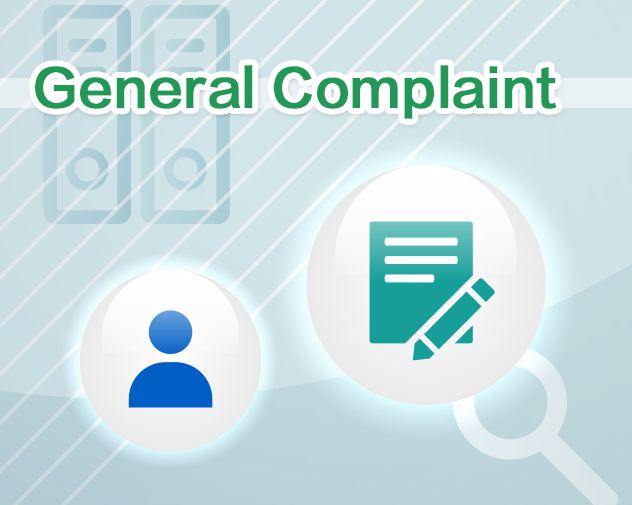- About PCPD|
- Data Privacy Law|
 Data Privacy Law
Data Privacy Law- The Personal Data (Privacy) Ordinance
- Six Data Protection Principles
- Codes of Practice/ Guidelines
- The Personal Data (Privacy) Amendment Ordinance 2021
- Amendments 2012
- Duty Lawyer Services
- Other Publications
- EU General Data Protection Regulation
- Personal Information Protection Law of the Mainland
- News & Events|
- Enforcement Reports|
- Frequently Asked Questions|
- Compliance & Enforcement|
- Doxxing Offences|
- Data Security NEW!|
- Anti-fraud Tips |
- Complaints|
- Education & Training|
- Resources Centre|
- Contact Us

Case Notes
Case Notes
This case related to DPP3 - Use of personal data , exemptions , Section 64 - disclosing personal data
Category : Provisions/DPPs/COPs/Guidelines :
Case No.:2023A06
(AAB Appeal No. 13 of 2023)
Use of personal data – exemption – section 60B – required in connection with legal proceedings – required for establishing or defending legal rights – disclosure of personal data without consent of data user – section 64(1) – whether opportunity should be given to the Appellant to respond or provide supplemental information – discretion not to carry out or continue an investigation
Coram:
Miss LAU Queenie Fiona, SC (Deputy Chairman)
Ir LAU Wing-yan (Member)
Mr Edmond YEW Yat-ming (Member)
Date of Decision: 12 June 2024
The Complaint
The Appellant’s former daughter-in-law filed a divorce petition and commenced matrimonial proceedings against the Appellant’s son. During the course of the matrimonial proceedings, the former daughter-in-law disclosed various information about the Appellant in the Form E Financial Statement and her affirmation filed to the Court, including information about his medical condition and employment history, and exhibited a land search record showing that the Appellant was one of the owners of a property.
The Appellant was dissatisfied that his former daughter-in-law disclosed his personal data to the parties of the proceedings and the Court without his consent. He also considered that the disclosure without his consent was in contravention of section 64(1)(a) of the Personal Data (Privacy) Ordinance (“PDPO”).
The Privacy Commissioner’s Decision
Since the Appellant’s personal data concerned was collected by his former daughter-in-law through her personal experiences (including communications with the Appellant and his son) as well as from the Land Registry, she was the data user of the personal data concerned.
Further, the personal data concerned was disclosed to the parties for the purpose of supporting the divorce petition of the Appellant’s former daughter-in-law against his son, and establishing or defending her legal rights in the matrimonial proceedings. As such, the use and disclosure of the personal data concerned was exempted from DPP3 by virtue of section 60B(c) of the PDPO.
With regard to the Appellant’s allegation in relation to section 64(1)(a) of the PDPO:-
- The Appellant’s former daughter-in-law obtained information about the Appellant’s medical condition and employment history through her personal experiences rather than another data user. Hence, section 64(1)(a) of the PDPO was not applicable.
- As regards the land search records obtained from the Land Registry, the Appellant’s former daughter-in-law submitted such record to the Court to show that the Appellant was one of the owners of the property concerned in the proceedings. Such use was consistent with the purpose prescribed by the Land Registry in the declaration for use of the Land Registry’s online services. Therefore, there was no contravention of section 64(1)(a) of the PDPO, nor DPP1 and/or DPP3.
Having considered all the relevant information available and the circumstances of the case, the Privacy Commissioner decided not to carry out an investigation into the case under section 39(2)(d) of the PDPO. Dissatisfied with the Privacy Commissioner’s decision, the Appellant lodged an appeal to the AAB.
The Appeal
The AAB affirmed the Privacy Commissioner’s decision and dismissed the appeal on the following grounds:
- The AAB found that the Appellant’s allegation that the Privacy Commissioner did not explain its rationale for why his former daughter-in-law was able to disclose his personal data to other parties in the proceedings without his consent was factually incorrect.
- The AAB agreed that the Appellant’s former daughter-in-law was using the personal data concerned in connection with the matrimonial proceedings for the purposes of establishing and/or defending her legal rights, and such use and disclosure of personal data was exempted from DPP3 by virtue of section 60B(c) of the PDPO. Section 60B of the PDPO was drafted widely and not stated to be limited to the use of personal data of the parties named in the court proceedings. Insofar as the meaning of the word “required” in section 60B is concerned, it was agreed that it probably does not mean there is a question of necessity when considering whether personal data can be disclosed.
- The AAB accepted that the manner in which the Privacy Commissioner conducts her investigation may differ depending on the nature and background of each complaint case, and it is within the Privacy Commissioner's authority to decide whether an opportunity should be given to the Appellant to respond or provide supplemental information. The Privacy Commissioner also has a wide discretion to decide whether to carry out or continue an investigation. In the present case, The Board noted that the Commissioner had already made further enquiries with the Appellant and the Appellant had provided further information. There was no proper basis to impugn the Privacy Commissioner’s decision not to carry out an investigation into the case.
The AAB’s Decision
The appeal was dismissed.
(Uploaded in March 2025)
Category : Provisions/DPPs/COPs/Guidelines :






























